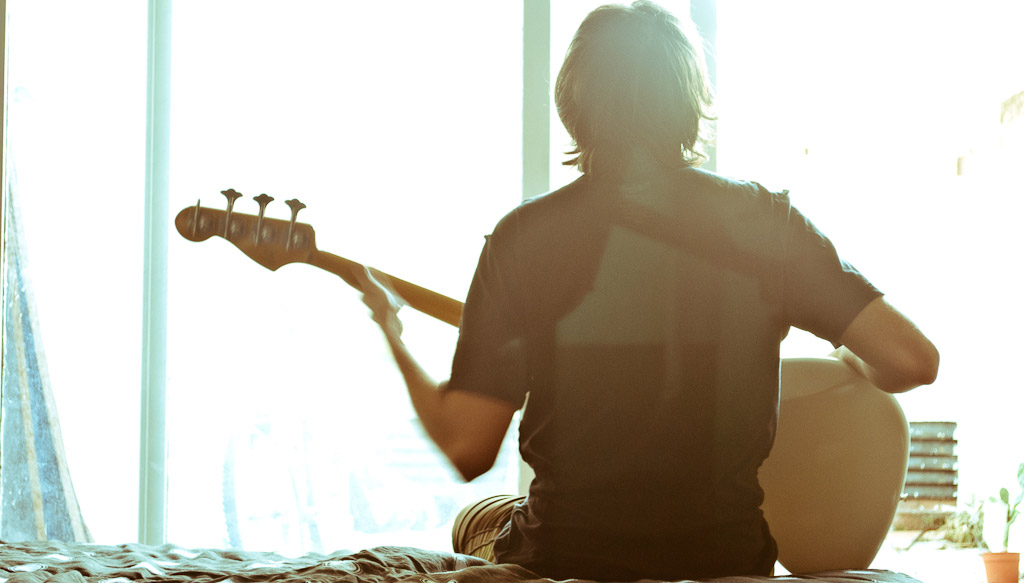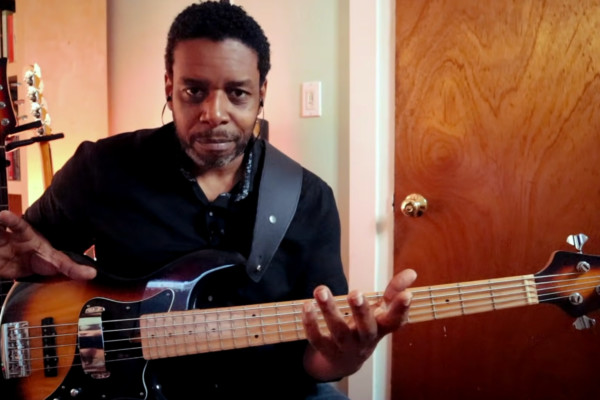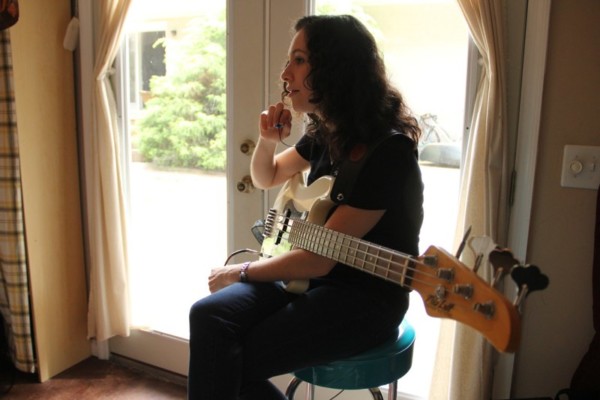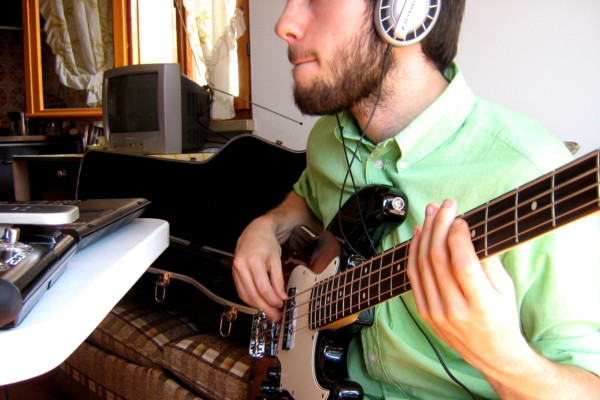What To Practice When You Don’t Have Gigs

Q: My question to you is this: what do you do when you’re not playing with a group and have no gigs on the horizon, particularly what to practice? Without a set of songs or even a style to give the context of what the bass should be playing, I find myself grasping for inspiration on what to practice. Also, how do you keep up stamina so that when you get the call for that 4-hour barroom gig you can jump right in again without being spent after the first set?
A: This ties in well with my recent column about visualizing your end game. Specifically, who do you want to be and how do you manifest that (musically speaking)?
Whenever I’ve found myself in a place where I wasn’t that busy or in those times where I’ve moved to a new town and had yet to make my connections, I always had to remind myself that it was a blessing in disguise of sorts. To have the time to devote to focusing solely on what you need to work on in order to develop, without the distraction of learning tunes you might not even like for gigs when married with the drive to do so can reap huge rewards.
As with the previously mentioned article, I would encourage you to think hard and long about who you want to be as a musician. Imagine yourself in your dream scenario. What does that look like? What does that sound like?
I won’t rehash that column but, take a second and read that, if you haven’t already.
Considering that I pretty well covered much of your answer in that previous column, let’s expand upon it and now consider your future as that musician you’ve visualized. In addition to molding your practice regimen around your ideal sense of self (musical identity), now also consider and visualize how you can make that into a financial reality. How are you going to make a living? Can you make a living following the path your ideal musical identity may lead you down?
Think about ways to marry your future musical identity with life practices and focuses that will help you manifest it, including envisioning how your future musical self makes a living.
When I did this kind of visualization, it led me to some interesting (and quite useful) realizations. I realized that my ideal musical identity was that of the ‘gun for hire’, with jazz/funk leanings. Initially, this meant that I put all of my energy into studying jazz harmony, working on playing changes, exploring world music and familiarizing myself with many different genres, getting my chops together, making sure that my reading was solid, continuing to work on odd meters, etc…
I also realized that it was unlikely that I would land that one gig that would keep me financially sound right away (if ever). This meant that, just as I diversified my musical identity, I needed to diversify my revenue stream (of which I had none at the time).
I realized that I needed to explore:
Passive Income
(AKA: Mailbox money)
- Composition. Having composing credits on albums is a great way to increase the flow of money. Even a trickle adds up over time. Every buck counts.
- The gear you need. In my quest to find the gear that worked for me, I also discovered some things lacking in the world of stuff out there for sale. I wound up developing some of my own products, primarily to fill those voids for myself, but I realized that, when you work with other companies to bring your ideas to life, you may also add to your passive income via small percentages of sales of things with your name attached to them. I also know a lot of musicians who simply start building their own gear. I didn’t have the knowledge base to follow that path but I found a hand-full of companies that were more than happy to help me realize and manifest my ideas
- Authoring books and albums. I am 100% self-published and own 100% of everything I put out into the world. I have a lot of friends who have also written books through other publishers but they typically see a pretty small percentage of the actual sales. Self-publishing has allowed me to see much more profits, even through lower sales (I can’t compete with the global reach of an established publishing house, but I don’t really need to). The crux here is that it’s easier to self-publish than ever and that means that the pool is pretty full. Your product has to be of pretty good quality and you need to work hard to get the word out there. Getting it for sale on Amazon (for example) is only the first step. You then need reviews, mentions in magazines, YouTube videos, etc… everything and anything you can do and that means a critical look at your work. It has to hold water or it’s self-defeating.
Active Income:
- Teaching. Clinics and masterclasses pay well typically. additionally, teaching workshops and music camps also help to facilitate relationships within the industry, expose you to new musicians coming up in the scene and vice-versa and is just an overall great way to explore what you know and helped me to more fully explore my musical identity
- Expanding my gig circles. Seeking out wedding bands, pop bands, jazz jams, Latin groups, etc… Looking for every possible type of playing opportunity in order to meet new people and expand my networking circles, as well as gaining much-needed experience.
- Go to hear the musicians that you aspire to play with and introduce yourself. Get their numbers or email in case you can drum up any work and you hire THEM to play. It’s a great way for them to get to know and trust you musically. That way, as you actively seek out musical opportunities, when you manage to land a gig somewhere, you already have the names and numbers of the players who will help you crush it… leading to more gigs, hopefully.
- Recording session work. See out the engineers, producers, and studios in town. Introduce yourself. Ideally, you’ll have something to hand them that gives a clear and concise example of what you can bring to them (demo reel, recordings, USB drive with videos, etc… whatever it is. You have to actively make connections until you get to the point where it is self-sustaining.
I think you likely have a good idea of where I’m heading with all of this.
In addition to taking the time you have available to focus, with intention, on manifesting your musical identity, you can also spend extra time considering how you will make a better living doing what you love if that’s a goal. Expand upon this visualization exercise and incorporate your life, in total, into these visualizations. Don’t just manifest your best musical self, taking it apart and evaluating how to work towards that, but start manifesting your dream career, your dream disposition, your ideal self non every way.
My previously mentioned column addresses your actual question. Once you’ve explored that, come back to this and take it further.
Best of luck and happy shedding!
Have a question for Damian Erskine? Send it to [email protected]. Check out Damian’s instructional books, Right Hand Drive and The Improviser’s Path.



